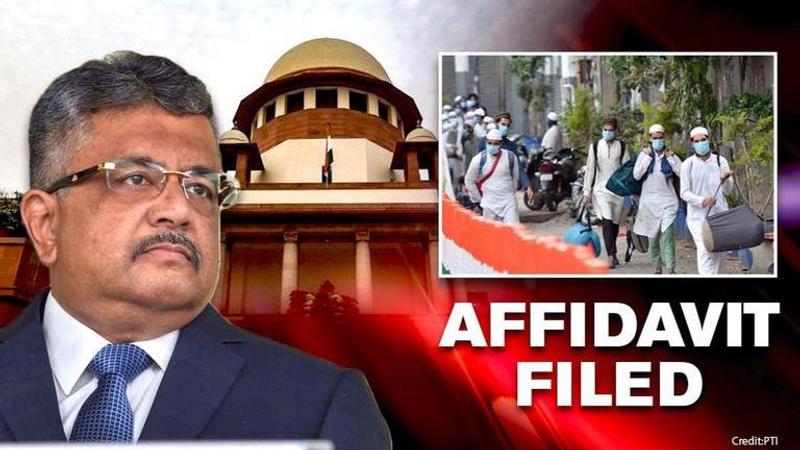Published 13:08 IST, July 2nd 2020
Visas of 2679 foreign Tablighis cancelled; Centre files affidavit in Supreme Court
The MHA on Thursday filed an affidavit in the SC expanding on the details of the action taken by the Centre against the foreign members of the Tablighi Jamaat

Shortly after the Supreme Court sought more information from the Centre regarding the blacklisting and cancellation of visas of foreign Tablighi Jamaat members, the Ministry of Home Affairs (MHA) on Thursday filed an affidavit expanding on details of the action taken by the Centre.
In the affidavit filed by the MHA, which has been accessed by Republic TV, the Centre has stated that the foreign Tablighi Jamaat members have "breached visa conditions and committed criminal offences." It has said that obtaining the visa is not a "fundamental right or even an enforceable right," rather being granted a visa is "a privilege." In line with this, the visa manual required the Tablighi members to take prior permission from relevant authorities before indulging in “Tablighi activities”, which they failed to do, as per the MHA.
The MHA revealed that the Immigration Bureau as of April 2020 had cancelled 985 visas and issued 1507 lookout circulars to Tablighis on e-visa. As of June, a total of 2679 visas had been cancelled. The MHA added that no member had been deported so far as criminal proceedings against them were ongoing.
Pleas in the SC
Back in April, the Ministry of Home Affairs had blacklisted 960 foreigners who were involved in Tablighi Jamaat activities despite being on a tourist visa. Moreover, their Indian visa has been cancelled. In another subsequent decision on June 4 over 2,500 foreign nationals were blacklisted for 10 years from travelling to India for their alleged involvement in Tablighi Jamaat activities.
Filed by foreign Tablighis from 35 countries, the petitions in the SC have demanded directions to the MHA to remove their names from the blacklist, reinstate their visas and facilitate their return to their respective countries. They termed the "unilateral blacklisting" of foreigners as a violation of Article 21 of the Constitution.
The Supreme Court had asked the Union government to clarify the blacklisting of the foreign nationals asking them whether it was a blanket directive or care was taken to hear and decide the merits of each case individually. Solicitor General Tushar Mehta had sought more time during the June 29 hearing.
The Tablighi Jamaat gathering at the Nizamuddin Markaz in New Delhi had come at a time in March when preventive measures against Covid were already in place, and yet, not only did the event go on but statements were also made inside that were unscientific and prescribed dangerous statements on the Covid outbreak and its potency. Those who attended then travelled to various parts, and many tested positive for Coronavirus, leading to a search and contact tracing effort that has seen the event being referred to in some quarters as a 'super spreader'.
Updated 13:08 IST, July 2nd 2020




